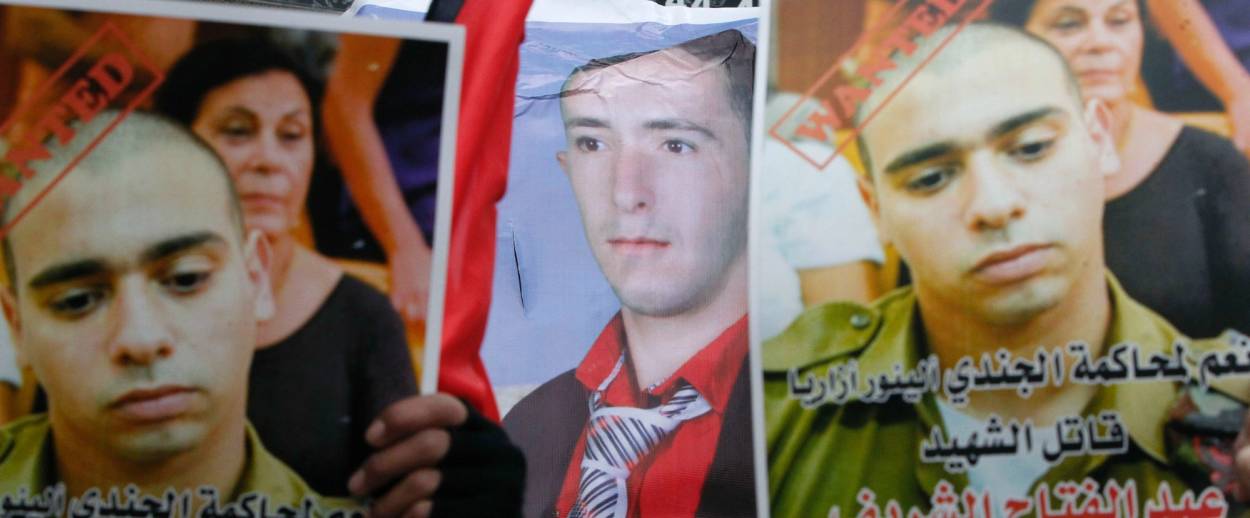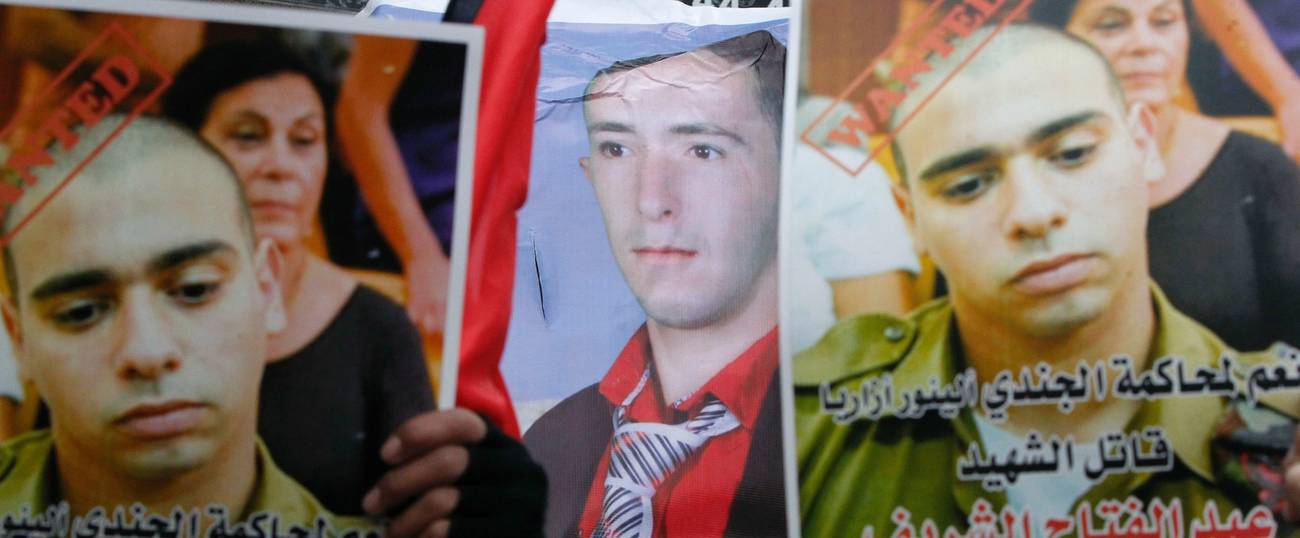IDF Soldier Who Shot Wounded Palestinian Terrorist Convicted of Manslaughter by Israeli Military Court
Sgt. Elor Azaria shot a downed Palestinian terrorist in March, prompting a national debate




Elor Azaria, the 20-year-old Israeli Defense Forces sergeant who shot a wounded and downed Palestinian terrorist last March, prompting a heated debate surrounding the event, was convicted of manslaughter in an Israeli military court on Wednesday. Azaria’s claim of self defense did not stand up to three judges who, over the course of two and a half hours, ruled his actions “disproportionate.” “The case,” reported JTA, “has been controversial in Israel, with some on the political right calling for solidarity with Azaria and others, including military leaders, suggesting such calls reflect a national crisis of ethics.”
It’s important to view this crisis, writes Tablet contributor Yoav Fromer, through the lens of the occupation. “What happened in Hebron…was not an aberration. It was an inevitable outcome of the occupation itself.”
There are moral, legal, and political reasons to oppose the occupation: It is often cruel and unjust to innocent civilians, illegal in whole or part according to international law, and diplomatically destructive to Israel’s position in the world. There are, however, also legitimate security concerns that prevent Israelis from unilaterally ending it: the occupation is a necessary evil, some claim, given the untrustworthiness of the Palestinian leadership, its egregious incitement against Israel, and the very real and imminent threat of terrorism. For some settlers and their supporters, the occupation is a form of territorial liberation that they justify religiously and historically.
What ideologues and pragmatists on both sides are overlooking though is that one basic criterion that should trump all others: self-preservation. And, if the Azaria trial…has taught us anything, it is that with each new generation that has to grow up with—and take part in—the occupation, a commensurate moral degeneration follows.
That is why Israel must make a fateful choice. If it genuinely cares about preserving its democratic ethos then it must find a way to minimize the mutually destructive friction with Palestinians.
Shortly after footage of the shooting was released, one poll showed that Israelis overwhelmingly supported the soldier’s actions—that he was put in an “impossible” situation. At the time of the event, Tablet senior writer Liel Leibovitz, speaking from experience, wrote:
The outpouring of sympathy isn’t hard to understand. The young soldier, whose name is still being withheld, is, in many ways, the embodiment of the collective unconscious of so many Israelis, sent at 19 to a complicated war zone and asked daily to make split-second life-and-death decisions amid waves of stoning, stabbings, and shootings. The overwhelming majority of Israelis have stood in the young soldier’s boots, and can empathize with the confusion, the fear, and the rage that accompany the fog of war. The government’s decision to condemn the soldier immediately upon his arrest, then, may prove to be not only judicially imprudent but also politically disastrous.
Sentencing will occur in about a month’s time. Arazia plans to appeal the verdict.
Previous: Charges Against IDF Soldier Who Shot Wounded Palestinian Terrorist Downgraded to Manslaughter
New Video Supports Testimony of IDF Soldier Who Killed Wounded Palestinian Attacker, Believing He Was an Imminent Threat
As IDF Soldier is Castigated for Shooting a Wounded Terrorist, One Survivor Recalls the Price of Inaction
Related: The Occupation Is on Trial
Jonathan Zalman is a writer and teacher based in Brooklyn.